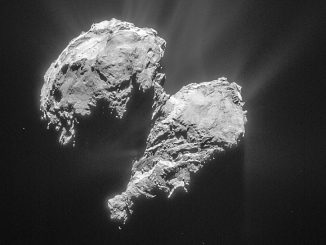
Caltech

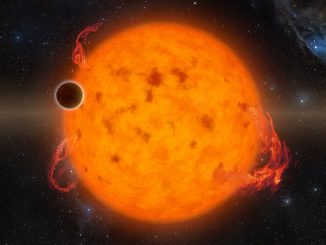
Newborn giant exoplanet found orbiting close to its parent star
A team of astronomers has confirmed the existence of a young planet known as K2-33b, only 11 million years old, that orbits very close to its star (at 0.05 astronomical units), with an orbital period of 5.4 days. Approximately five times the size of the Earth, the new planet is a “super-Neptune” and the youngest such planet known.
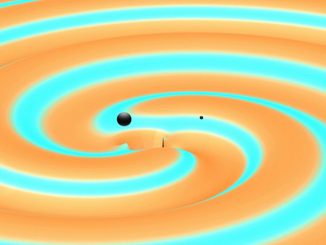
Did gravitational wave detector find dark matter?
A matter of scientific speculation since the 1930s, dark matter itself cannot yet be detected, but its gravitational effects can be. Now, eight scientists from Johns Hopkins University consider the possibility that the first black hole binary detected by LIGO could be part of this mysterious substance known to make up about 85 percent of the mass of the universe.
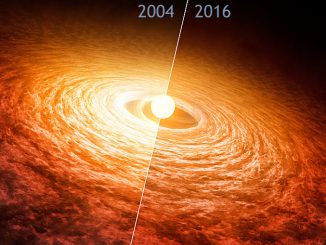
Gluttonous young star may hold clues to planet formation
In 1936, infant star FU Orionis began gobbling material from its surrounding disc of gas and dust with a sudden voraciousness, eating the equivalent of 18 Jupiters in the last 80 years. During a three-month binge, as matter turned into energy, the star became 100 times brighter, heating the disc around it to temperatures of up to 6,650 °C.
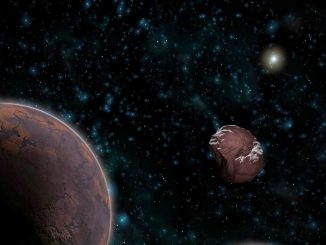
Extreme trans-Neptunian objects lead the way to Planet Nine
In the race towards the discovery of Planet Nine, scientists from around the world strive to calculate its orbit using the tracks left by the small bodies that move well beyond Neptune. Now, astronomers from Spain and Cambridge University have confirmed that the orbits of the six extreme trans-Neptunian objects that served as a reference to announce the existence of Planet Nine are not as stable as originally thought.
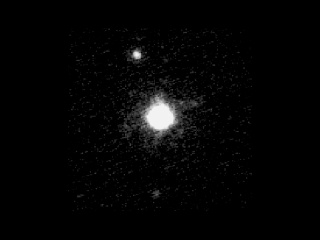
Dwarf planet Haumea’s lunar system smaller than anticipated
Haumea, a dwarf planet on the edge of our solar system, doesn’t have the same kind of moons as its well-known cousin Pluto according to a new study. This is despite original evidence that suggested they both formed in similar giant impacts and adds to the mystery shrouding how these icy bodies formed.

Speeding binary star discovered approaching galactic escape velocity
There are about two dozen so-called hypervelocity stars known to be escaping our Milky Way galaxy, but PB 3877 is the first wide binary star found to travel at such a high speed. The results of a new study challenge the commonly accepted scenario that hypervelocity stars are accelerated by the supermassive black hole at the galactic centre.

Earth-space telescope observations of quasar 3C 273’s hot heart
Astronomers using an orbiting radio telescope in conjunction with four ground-based radio telescopes have achieved the highest resolution, or ability to discern fine detail, of any astronomical observation ever made. The researchers were surprised when their Earth-space system revealed a core temperature hotter than 10 trillion degrees for quasar 3C 273.


Scientists to provide update on the search for gravitational waves
This year marks the 100th anniversary of the first publication of Albert Einstein’s prediction of the existence of gravitational waves. With interest in this topic piqued by the centennial, researchers from UK universities in Glasgow, Birmingham, and Cardiff will discuss their ongoing efforts to observe and measure cosmic gravitational waves for scientific research in London on Thursday, 11 February.
